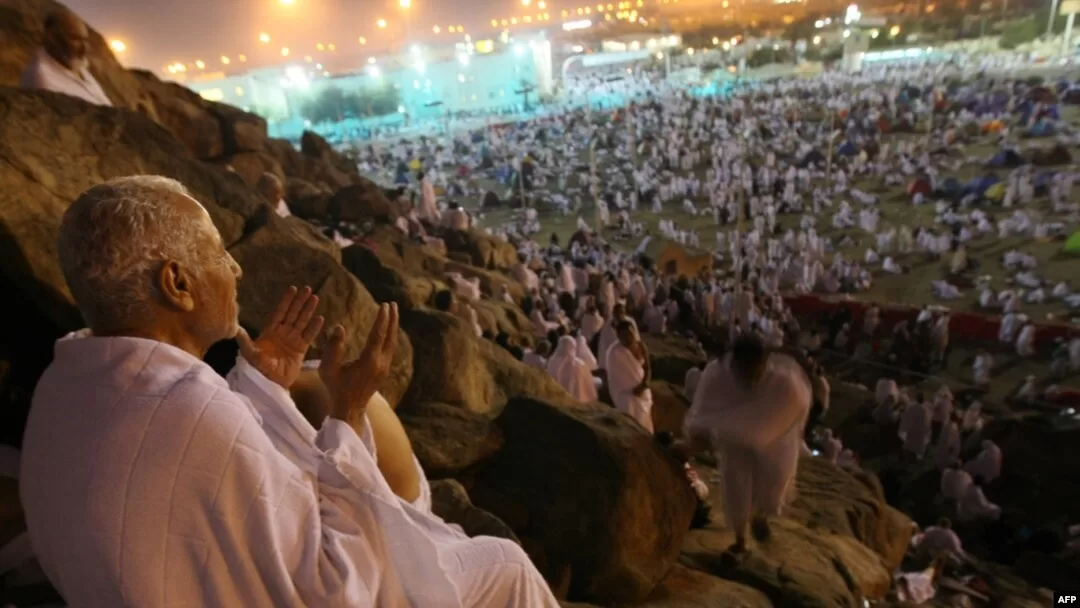Every Muslim must perform the Pilgrimage to Makka at least once in their lifetime if they have the ability (physical, financial, etc.) to do so. Pilgrimage becomes obligatory when the ability first is obtained. To delay the Pilgrimage at all past that point is a sin.
When you make your intention to perform the pilgrimage to Makka, start with tauba (repentance), returning anything which is not rightfully yours, undoing any acts of oppression against others, pay off all of your debts, prepare all expenses for all those it is your obligation to support until your planned time of return and return any trusts to their rightful owners. In other words, with the exception of the support of dependents, leave for Makka as if you are never going to return.
Take with you LAWFUL wealth an amount sufficient for going, expenses and returning and also for giving some to someone more needy than yourself. Allah said:
{Pilgrimage is [during] known months so whoever intended therein the pilgrimage, there is no obscenity, no wickedness and no argument in the Pilgrimage. And whatever good you do, Allah knows it. And prepare your provisions for surely the best of provisions is piety and beware of Allah O people of wisdom.} Al-Baqarah:197
Seek out the company of righteous individuals who love what is good and aid others in doing good. If you become forgetful they will remind you and when you are in remembrance they will aid you. If you become frustrated they will help you to have patience.
Any such group which sets out for the Pilgrimage must assign the best of them, the most knowledgeable of Islam and of the rulings of the Pilgrimage in particular and the most compassionate with his companions to be their amir for the duration. Allah’s Messenger (sas) said: “It is not lawful for [even just] three people in a desolate area but that they must appoint one of them over them as amir.” This is needed because opinions can differ and this will prevent organization and smooth functioning if the obligation of having an amir is neglected. The duty of the amir is compassion for his companions, consultation with them on their collective affairs and looking out for their interests in every way.
As we saw from the verse from Al-Baqarah, there is a special obligation upon the pilgrim to keep his speech clean and beneficial, to show kindness and generosity to others and to be on the best of character in every way. Of course, these are obligations at all times, but are especially important during the Pilgrimage. It is the nature of travelling that it brings out what is otherwise hidden within. There are many opportunities to lose patience and otherwise behave with bad character. If one can maintain the best character while travelling, he will have even better character when at home. It has been said: “If a person is praised by those who interact with him when resident and his companions on a journey, then do not doubt his piety.”
Finally, he should bid farewell to his companions leaving them in the care of Allah as was the custom of Allah’s Messenger (sas):
Abu Huraira said to another man, “Come so that I may take leave of you as Allah’s Messenger (sas) took leave of me…” – or he said, “as Allah’s Messenger used to do…” [He continued:] “I leave you as a trust with Allah, the one whose trusts are never lost.”
Before leaving, pray two rakaat in your home and begin your journey with one of the du’a of travelling as found in the sunnah such as the following:
… Ibn Umar taught them that when Allah’s Messenger (sas) used to mount his camel to go on a journey he would say “Allahu Akbar” three times and then say: “Exalted is the One who put this under our control while we had no ability to control it – and unto our Lord is our final return. O Allah, we ask you in this journey of ours righteousness and piety and actions which are pleasing to you. O Allah, make this journey easy for us and shorten its distance. O Allah, You are the companion on a journey and the caretaker of the household. O Allah, I seek refuge in you from the trials of travelling, from a bad appearance and from returning to evil in wealth or in household.” Then, upon returning, he (sas) said the same things and added: “Returning, repenting, worshipping our Lord and praising Him.”
Service to Allah Alone
KNOW that the way to Allah is dedication to His service and to that alone to the exclusion of all else. The Christians and the Jews invented monasteries and going to the mountains and caves in isolation seeking a relationship with Allah. However, Allah declared this invention of theirs a bid’a (innovation in religion) and disavowed any relationship to it or any authority for it. Allah said:
{Then, we sent after them messengers and we sent after them Isa the son of Maryam and we gave him the Injeel and we placed in the hearts of those who followed him compassion and mercy but [as for] asceticism, they innovated it. We did not prescribe it for them, only seeking the pleasure of Allah, but they failed to attend to that as is befitting to it. So, we gave those who believed among them their reward and many of them are corrupt.}
For this Ummah, Allah made the Pilgrimage the time of dedication to Allah alone to the exclusion of all else in terms of worldly affairs.
From Abdullah ibn Amr ibn Al-Aas that the Prophet (sas) used to say: “Verily Allah Mighty and Great boasts to the angels on the evening of Arafat about the people at Arafat saying, Look at my slaves, they have come to me disheveled and dusty…”
And, in another version, the last part of Allah’s statement to the angels is:
He (i.e., Allah) says: O angels, look at these slaves of mine. They have performed their obligation and they await my reward.


